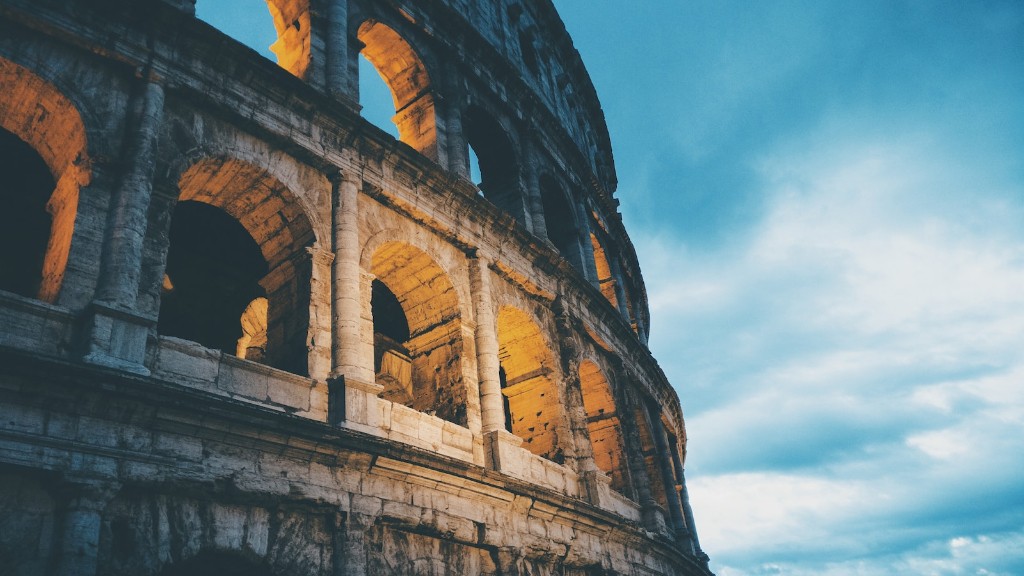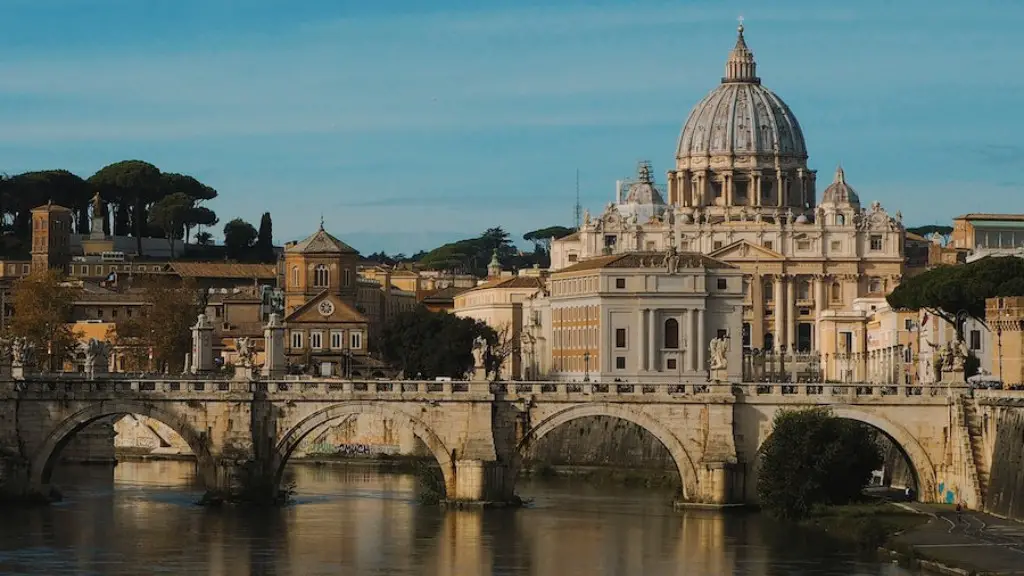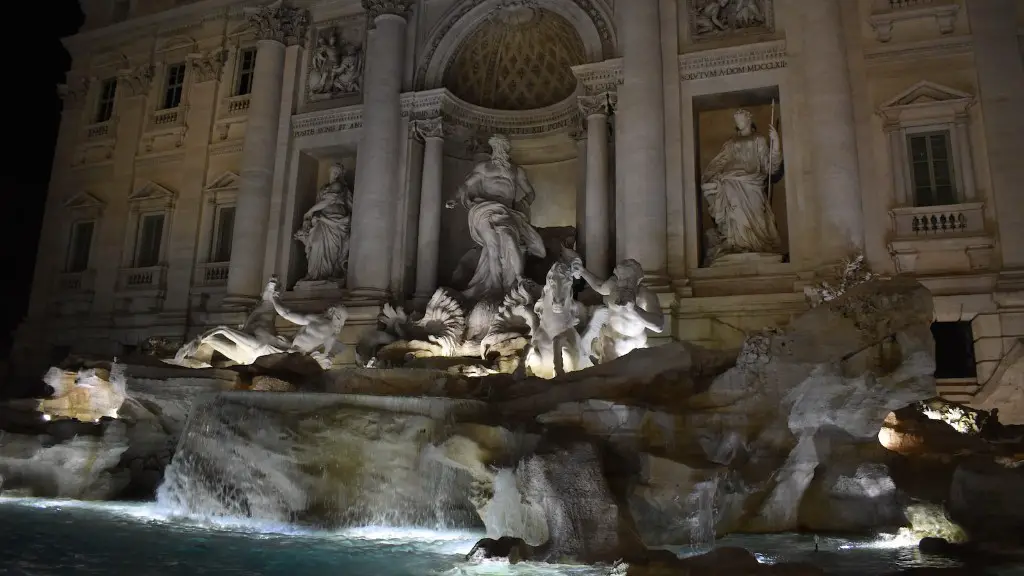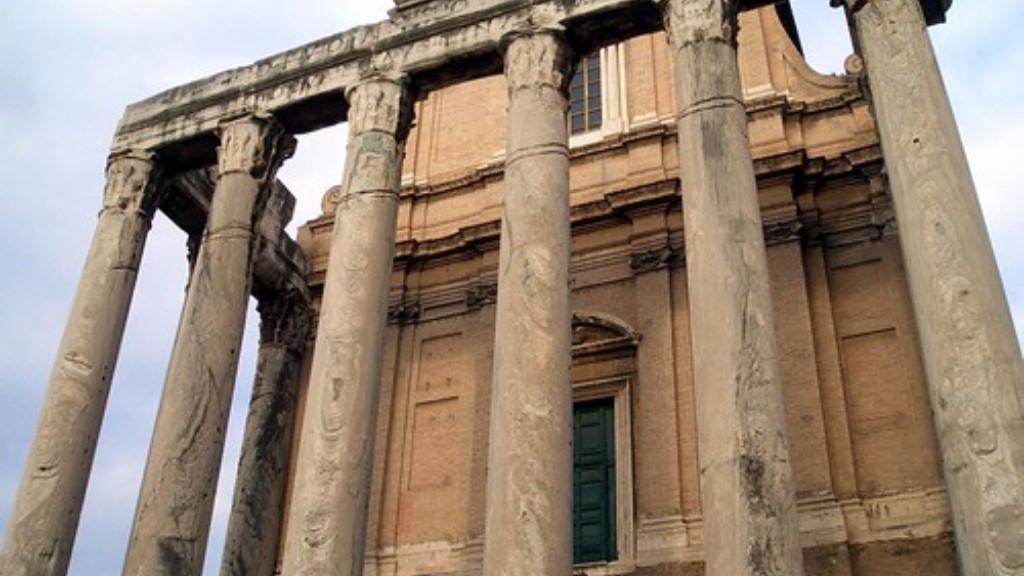Overview of Ancient Rome Beliefs
The Ancient Romans were a polytheistic people, worshipping a variety of gods, many of which they adopted from their neighbors and predecessors. They believed that death represented the end of earthly existence and the transition to a spirit world. Ancient Roman funerary practices reflect their religious beliefs that the dead were destined to a separate realm or the afterlife. Ancient Roman beliefs about the afterlife were based on their own myths and legends, as well as heavily influenced by the neighboring Greeks, Etruscans and Celts.
The Underworld
According to Ancient Roman mythology, the underworld, known as the Avernus, was an eternal realm where dead souls went after death. The underworld was ruled by the gods Pluto and Proserpina and was believed to be an underground realm, hidden away beneath the earth. The ancient Romans believed that the souls of the dead inhabited the underworld, where they lived their afterlives. In some beliefs, Hades was responsible for ruling all the realms of the underworld, including the Elysian Fields, Tartarus and Elysium, as well as the mythical islands of the Blessed.
Rome’s Afterlife Mythology
The Ancient Romans believed that the souls of the dead went on an journey through the underworld before eventually reaching their permanent destination. This journey was known as the after-death journey, and the soul was believed to journey through the various realms, encountering many gods and monsters along the way. After the soul’s journey came to an end, it was believed that the soul was rewarded or punished according to their deeds while they were alive.
The Elysian Fields
The Elysian Fields, also known as Elysium, was believed to be the home of the afterlife for the souls of the virtuous and the heroes. Those who were able to cross the river Styx and reach this realm were believed to have achieved eternal paradise. The Elysian Fields were filled with eternal darkness, and it was believed that the souls of the dead could rest and enjoy their afterlife in peace.
Tartarus
Tartarus was the realm of the afterlife for the wicked and those condemned to eternal pain. In some beliefs, Tartarus was a place of punishment and torment, while in other beliefs, it was a realm of darkness and oblivion. No matter the belief, it was believed that those who were sent to Tartarus would never escape, and they would remain there in misery and destitution.
The Fates of the Mortals
The ancient Romans believed that the gods had complete power over the fate of mortals. After death, it was believed that the gods decided the fate of each deceased soul. Depending on a person’s deeds during their life, the gods would sentence them to an eternity of either blissful paradise or tormenting punishment.
Mythological Locations Influencing Beliefs
In Ancient Rome, many of the beliefs about the afterlife were heavily influenced by the neighboring cultures and myths. For example, the Greek myth of the Judgment of Paris, in which a judgement is passed on the three goddesses of beauty, is believed to have influenced Roman beliefs in the fate of the dead. Similarly, the depiction of the underworld in the ancient Etruscan and Celtic myths are believed to have influenced the perception of the afterlife among the ancient Romans.
Funerary Rituals
The Ancient Romans held elaborate funerals for their deceased, as this was believed to be an important part of their journey to the afterlife. Funerary rituals included the purification of the body, the offering of prayers and sacrifices, and the laying of the body in a ritualistic tomb. The funerals were an important way for the ancient Romans to honor the dead and to ensure that the deceased could find their way to the underworld.
Religious Practices Influencing Beliefs
Religious practices were an important part of the Ancient Roman belief system and many of their rituals, practices and beliefs were heavily influenced by their religious practices. For example, the burial at sea was practiced to ensure that the deceased could reach the underworld, while offerings and sacrifices were a way to ensure the favor of the gods. Similarly, many gods, such as Pluto and Proserpina, were believed to have dominion over the underworld and were worshipped in the funerals of the dead.
Influence on History and Genres
The ancient Roman beliefs on death and the afterlife have had a profound influence on history and culture. From literature to art, the Ancient Roman beliefs on death and the afterlife have become a powerful source of inspiration for writers, artists and filmmakers. The Ancient Roman myths and beliefs of the afterlife have become a relevant topic for debate and discussion in both religious and philosophical circles.
Legacy
The belief in the afterlife and the idea of a spirit world have been passed down through many generations, which is why the Ancient Roman beliefs on death and the afterlife have been so enduring. Today, many people still adhere to some of the Ancient Roman beliefs, even if they are not aware of their origin. From the influence of the gods to the idea of the after-death journey, these beliefs remain deeply embedded in the cultural and religious beliefs of many people.
Funeral Practices
Ancient Rome funerary practices were heavily influenced by their beliefs on death and the afterlife. Their funerary ceremonies and rituals were often elaborate and theatrical, with many of them being heavily focused on honoring and celebrating the deceased. Professional mourners were hired to lead the funerals, while music, flowers and wreaths were used as a way to send off the deceased in a grand way. In Ancient Rome, funerals often served as an outlet for the grief of the family and community, allowing them to grieve, honor and celebrate the passing of the deceased.
Burial Practices
The Ancient Romans held a variety of burial practices, which reflected their beliefs and their values. The most common form of burial was cremation, which was thought to be a way to release the spirit of the dead from the body. In-ground burial was also practiced, with the deceased being buried in graves or underneath tombs. As with the funerary practices, the burial practices reflected the Ancient Roman beliefs on death and the afterlife, and were often elaborate and reflective of the deceased’s status.
Modern Relevance
Although we no longer believe in the gods or the underworld of Ancient Rome, the beliefs surrounding death and the afterlife remain relevant, regardless of our level of knowledge. The idea that death is not the end, but merely a transition, is one that is still widely accepted, whether that be in the form of a spirit world, an afterlife or simply in memory. The Ancient Roman beliefs on death and the afterlife helped shape the beliefs of many cultures and religions, and are still influential in modern thought.
Influence on Religion and Philosophy
The Ancient Roman beliefs have had a lasting effect on the development of religion and philosophy. The concept of the afterlife has been widely debated and discussed, and the Ancient Roman beliefs on death and the afterlife have provided a powerful source of inspiration for many religious and philosophical movements throughout history. Additionally, many of the gods of Ancient Rome have survived in modern religion, with some, such as Pluto and Proserpina, becoming gods and goddesses of prominent religions.



